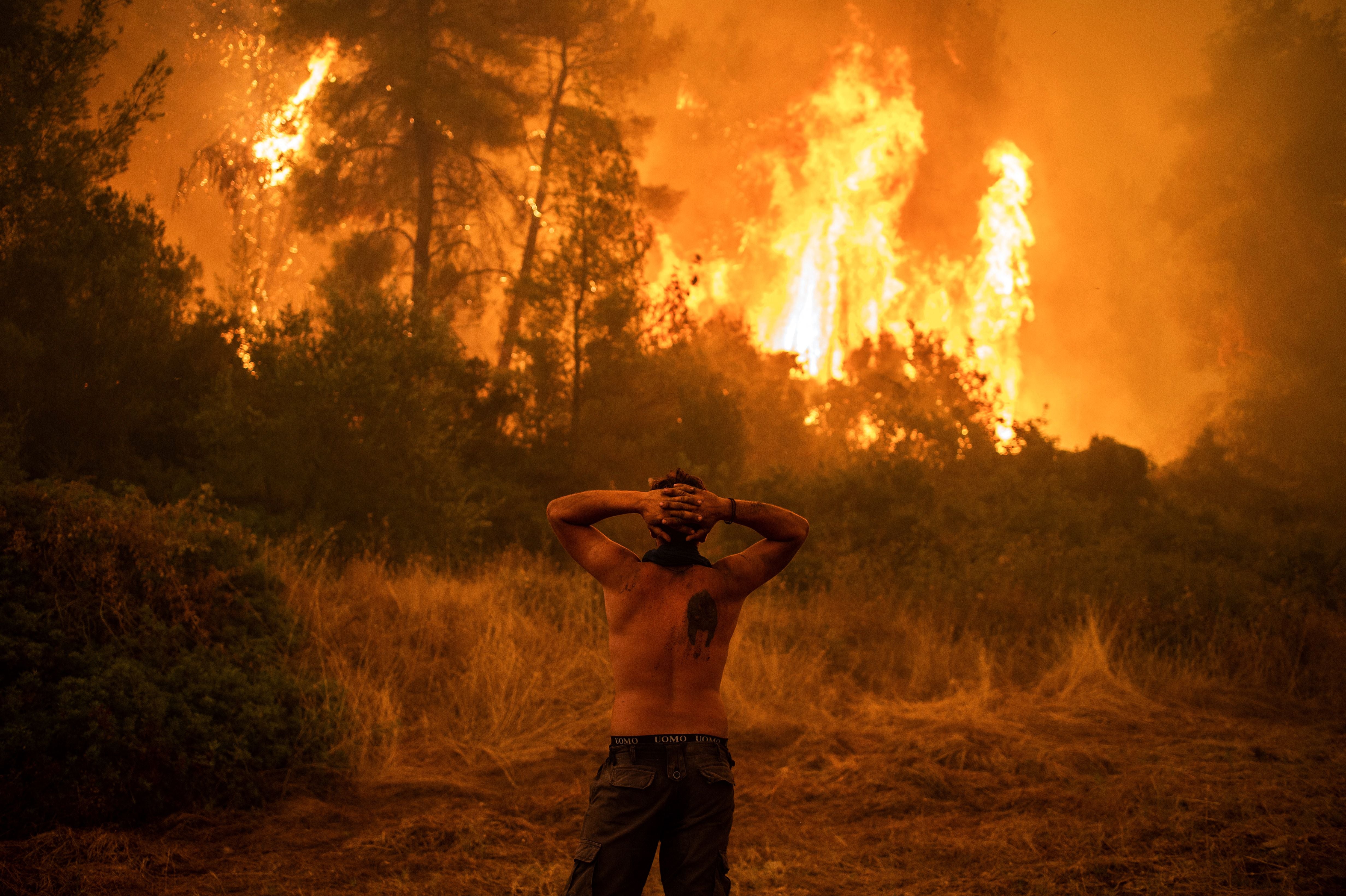Your support helps us to tell the story
From reproductive rights to climate change to Big Tech, The Independent is on the ground when the story is developing. Whether it's investigating the financials of Elon Musk's pro-Trump PAC or producing our latest documentary, 'The A Word', which shines a light on the American women fighting for reproductive rights, we know how important it is to parse out the facts from the messaging.
At such a critical moment in US history, we need reporters on the ground. Your donation allows us to keep sending journalists to speak to both sides of the story.
The Independent is trusted by Americans across the entire political spectrum. And unlike many other quality news outlets, we choose not to lock Americans out of our reporting and analysis with paywalls. We believe quality journalism should be available to everyone, paid for by those who can afford it.
Your support makes all the difference.Devastating wildfires caused by a prolonged heatwave have led to evacuations of residents and tourists in Greece in recent days.
Thousands have been evacuated by ferry and fishing boat from the island of Evia, with evacuation orders also in place on the mainland north of the capital, Athens.
Hundreds of firefighters, including some sent from the UK, France and the US, have been trying to control the fires since they began on 3 August.
Where are the Greek wildfires?
Wildfires are raging on the Greek island of Evia, prompting around 2,600 to evacuate by sea. Evia, the second largest Greek island after Crete, is located north-east of Athens, the Greek capital. It is a popular destination for domestic tourism.
Large fires are also burning in Greece’s southern Peloponnese region, where hundreds of businesses have been destroyed or damaged, and power cuts have affected at least 17,000 households.
The Peloponnese peninsula is home to Ancient Olympia, the site where the Olympics were held in anitiquity. Firefighters prevented the fire from reaching the area.
Fires on the mainland, in towns north of Athens, have now subsided, having killed at least two people and injured a further 20. Thousands were ordered to leave their homes.
What’s causing the Greek wildfires?
Though the exact cause of these fires is as yet unknown, the blazes are made possible as a result of a prolonged heatwave, with temperatures hitting 45 degrees Celsius.
Wildfires are a regular occurrence in the summer in this part of the Mediterranean, spreading easily through pine forests on the Greek mainland and islands.
Fires of this size and ferocity are rare, however, with Greek Prime Minister Kyriakos Mitsotakis calling the current wildfires “a natural disaster of unprecedented dimensions”.
Are tour operators cancelling trips?
No tour operators or airlines have cancelled trips or flights as yet.
The Foreign, Commonwealth and Development Office (FCDO), which provides advice for Brits planning trips overseas as well as those already abroad, states:
“Forest fires often occur during the summer months across Greece due to the dry/hot weather.
“Forest fires can cause travel disruption in wider areas. You should monitor local and international weather updates from the Greek Meteorological Service or European Meteorological Services, follow the advice of local authorities at all times and check with your travel provider for travel updates.”
According to Noel Josephides, chairman of Sunvil, an independent operator that specialises in holidays to Greece, “the effect has really been on local tourism”, with wildfires impacting areas of the country largely visited by domestic tourists.
Elsewhere in Greece, he went on, “the fires have been about average”, with no cause for concern in any of the areas Sunvil sends its customers.
Elena Soupiana, press counsellor for the Embassy of Greece in London, said: “British tourists are welcome and safe in Greece. The safety of all travellers is a priority for the Greek government.
“If British tourists, by any chance, are in the affected areas, they should follow the advice of local authorities at all times and check with their travel provider for travel updates. For further information visit the Civil Protection website.”

Join our commenting forum
Join thought-provoking conversations, follow other Independent readers and see their replies
Comments